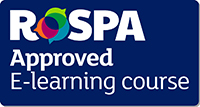Level 3 Food Hygiene and Safety
The Level 3 Food Hygiene and Safety course is designed for managers and supervisors who need a broad understanding of food safety controls and an in-depth knowledge of food hygiene best practices. It is suitable for those who are in charge of developing and maintaining food safety management systems, as well as informing them about their training and legal responsibilities.
It is recommended that all food businesses have at least one person trained to this level.
If you are unsure whether you need to take the Level 3 food hygiene course, please view our infographic for guidance.
Get started with this online course today to achieve your Level 3 Food Hygiene and Safety Certificate.

£80.00 + VAT
Bulk Buy Discounts
10+ courses - Save 5%
20+ courses - Save 10%
50+ courses - Save 20%
75+ courses - Save 25%
100+ courses - Save 30%
Volume discount applied at checkout


Key Features of Level 3 Food Hygiene and Safety
Who Should Take This Course?
Course Content
This module covers key terms and concepts for safe food handling and preparation.
In this module, you will learn about important food safety laws and the responsibilities of food business managers.
It also covers the basics of HACCP principles, understanding food-borne illnesses and the impacts of non-compliance.
This module addresses physical contamination in food, highlighting the role of supervisors and managers in the prevention of physical contamination. It covers the '6 Ps' of physical contamination, strategies for removing contaminated food, taking immediate corrective action and maintaining accurate records.
In this module, you will learn how to manage chemical contamination in the food supply chain and be introduced to the hazards of pesticides, pollution and the use of chemical-based cleaning products.
It will also teach you about detecting harmful chemicals, understanding their health effects and recognising the symptoms of chemical food poisoning. In addition, you will understand how to adopt safe food handling and storage practices and communicate with suppliers to reduce the risks of chemical contamination.
This module looks at allergen management in the food chain and safe food allergen handling practices.
You will also learn about the identification and control of allergens, the symptoms of allergic reactions and the importance of communicating with suppliers to reduce cross-contamination risks.
This module looks at microorganisms and sources of microbial contamination. It also details pathogen identification and prevention strategies.
This module explores the health risks associated with foodborne diseases, including food poisoning and viral contamination.
You will also learn about identification, sources and impact of these foodborne illnesses, along with prevention and control strategies for bacterial and viral outbreaks.
This module highlights the importance of exceptional hygiene standards in food production, including temperature management for deliveries and storage preservation techniques. It also covers efficient stock management and the significance of use-by and best-before dates.
This module focuses on maintaining correct food temperatures to ensure safety and prevent bacterial growth, covering refrigeration, reheating and cooling techniques. It also looks at the use of temperature-measuring tools like digital probe thermometers.
This module guides you through designing food workspaces so they adhere to food hygiene practices and minimise contamination risks.
It also covers choosing the right materials for your workspace and strategically arranging lighting, ventilation, utilities, fixtures and fittings as well as optimising food storage areas.
This module helps you develop effective waste management and cleaning routines, including setting up a cleaning schedule, selecting appropriate cleaning materials, implementing careful waste disposal methods and ensuring consistent cleaning practices.
This module covers the importance of pest management in food businesses, highlighting strategies for preventing pest infestations, collaborating with pest control services and keeping detailed pest control records to mitigate health risks and food contamination.
This module teaches you how to set up a HACCP food safety management system. This includes key principles and a 12-step process to follow, as well as the importance of detailed records and effective labelling for ensuring food safety.
This module outlines the role of personal hygiene in the workplace, detailing methods for enforcing hygiene practices through staff training, policy enforcement and key measures like proper handwashing, wearing protective clothing and minimising contamination risks.
This module outlines the significance of food hygiene training, effective communication and detailed training records for all staff to ensure you cultivate a strong food safety culture and comply with food handling regulations.
FAQ
The Level 3 course will provide you with suitable training to supervise staff in the safe handling of food in catering, retail or manufacturing.
Taking this course can not guarantee you a 5 star food hygiene rating but if you utilise the knowledge you'll learn and put it in to practice, you'll be well prepared for any visit by Environmental Health.
Yes. Once you have successfully met the pass requirements and completed the course, you will be sent an electronic personalised certificate.
There is no defined point at which you need to re-take your training. The most common re-take period is 3 years and we will send you a gentle reminder in plenty of time.
This training course has been assured by RoSPA and accredited by The CPD Group.
Genuine reviews
We use an independent third-party organisation to capture our reviews, so you can be assured that all our reviews are from genuine customers.
Why use our Learning Management System?

Call us today at 01327 552136!
Or, alternatively:
